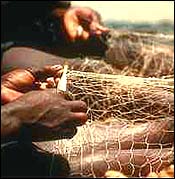 For an hour yesterday, sixty neighbors and church friends fanned out through the parks, nature trails and public spaces around our neighborhood and collected 650 lbs of litter.
For an hour yesterday, sixty neighbors and church friends fanned out through the parks, nature trails and public spaces around our neighborhood and collected 650 lbs of litter.
It was a celebration of Earth Day that I think would have made Earth-maker smile. Kids and parents had fun together, neighbors met or got re-connected, the landscape looks much better for our efforts, and the ducks, snakes and other wildlife in the area have a healthier habitat.
Call it a springtime facelift or an overdue winter cleanup, this little act of earth-keeping and creation care was a way of giving something back to the land that gives so generously to us all.
The first word is an exclamatory “O”! What a marvelously complex gift so full of wonder and joy! Today is one for praise – I know that because at 4:30 this morning a cardinal was straining to teach me his canticle outside my window!
The second word is “Thanks”! Thanks for such a lavish and generous gift that keeps on giving. Thanks for the privilege of life amid such beauty and wisdom.
Thanks for the privilege and honor of being entrusted with such extravagant resources. I could sit at the top of the food chain like a little emperor, as if it was all for my benefit alone, but I can’t. I’m convinced that the gifts of advanced reason and language, culture and technology are given so that you and I, together with the whole cosmos, can give glory back to our Creator.
But that leads to my third word – “Sorry” – because clearly our tribe has done more than its fair share of hogging the spoils of the earth without regard to others – whether our global neighbors or the generations to follow us. This Earth Day for the first time, I think, I’m groaning a little in synch with the whole creation that groans under the oppressive weight of human recklessness and disregard, my own included. There is room for confession, lament and apology.
And so my last word is “Yes” – a joyful repentant “yes”!. “Yes, my Lord and God, I long to do your will! Yes, I will open my eyes to be more attentive and mindful of the gifts and mercy you give me every day, every hour! Yes, I will join you, generous God, in being a giver, not just a taker!
And Yes, I join with others who care about the well-being, the shalom, of the world you have given us!”
Yes, Yes, Yes! Happy Earth Day.
P.S. Three of these four words are inspired by Brian McLaren's Naked Spirituality - A Life with God in 12 Simple Words.






















